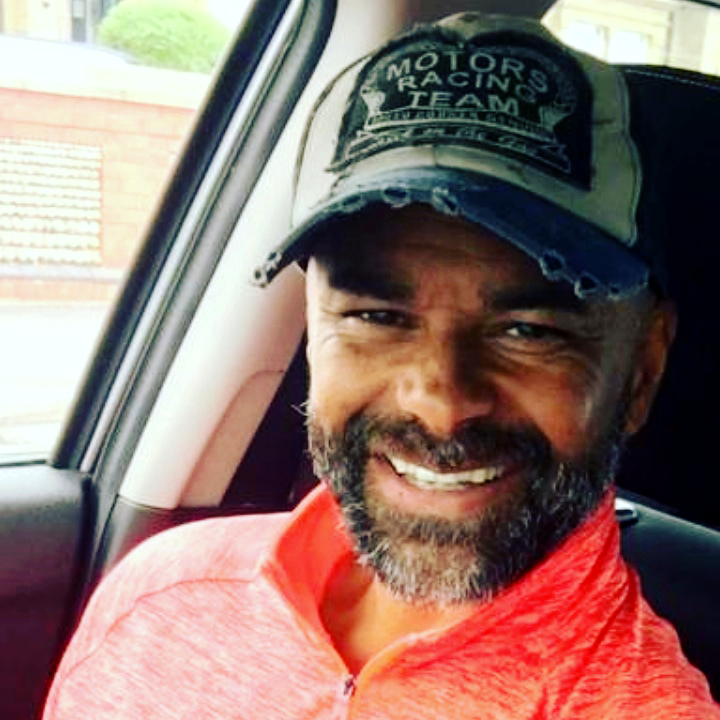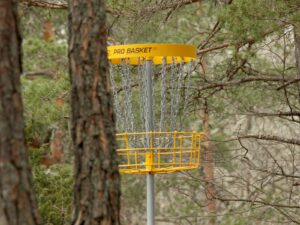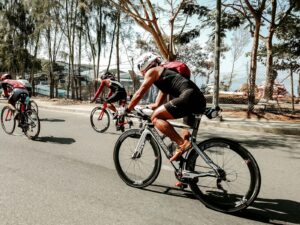John O’Kane: I love being different

When the prospect of doing an autobiography was first floated to John O’Kane, he thought, ‘Why would people be interested in what I’ve got to say?’
But the people around him knew that he had his fair share of stories to tell, and once John started to collate all his memories together he realised that they were right.
John has autism and was part of Manchester United’s 1991/92 FA Youth Cup-winning side – a squad that is now famously known as the Class of ’92.
Now three decades on from that season, John’s book Bursting The Bubble: Football, Autism & Me will be released on 13th September and is currently available for pre-order.
After progressing through the Old Trafford youth ranks, the full-back appeared for the Red Devils’ first team and three clubs on loan before being signed by Everton. He later added promotions with Bolton Wanderers and Blackpool to his resume and helped the Seasiders lift the EFL Trophy in 2002.
John finished his career at Hyde United in Greater Manchester, and despite his experiences as a professional, it was playing regularly in non-league that helped him learn more about the power of the game in local communities and the importance of doing things that you enjoy.
“At Hyde, I felt free, like when I was aged 14 or 15 growing up and starting to play,” John said. “That was missing in the professional game, and I played my best football and enjoyed it the most because I didn’t feel pressure.
“Sport keeps you fit and stimulates you in so many ways, like seeing friends and getting out and doing something rather than being stuck in your house.
“You can do anything you want; don’t be afraid to get out there – it’s a big world and you have got to explore it, and there’s help available if you need it.
“If you want to get involved in sport but you have a disability, it doesn’t matter. There are so many avenues that you can try that can benefit you, and if you are enjoying it, do it to the max and go as far as you can.”
While playing semi-professionally at Hyde, where he was influential in a trophy-ladened spell that included two league titles and three cups, John was looking for work alongside his football.
He first tried labouring with some friends, but eventually found reward in working in the care industry in Preston, becoming an understanding figure for children and adults who were also on the spectrum.
“I wanted to wake up and think, ‘What am I going to be doing today?’ You could be posted with a different child every day, so it was really interesting.
“I was in there for 15 years, in preschools, university colleges, respite care, care homes, all sorts of places, and I loved being around the characters who were working there as well.
“I’m very lucky that I can cope with my autism, as some people can’t manage it themselves because they are severely on the spectrum – I know exactly how to approach these children and adults.
“I have taken children to football games and you have to spot the triggers; sometimes they can’t cope in that situation with the crowds. I’m the same sometimes – I can be in a crowd with friends and I’d have to get out, just because of something in me that doesn’t feel right.
“A lot of autistic people can’t go to games because they can’t handle the noise and that amount of people, so improving access for them is definitely a good thing.”
It is only since retirement and becoming a fan that John’s passion for the game has really blossomed.
He had known very little of Manchester United before he was scouted by the club, which was already an established footballing powerhouse that had, and would continue to be, home to some of football’s highest-profile figures.
“If you want to get involved in sport but you have a disability, it doesn’t matter. There are so many avenues that you can try that can benefit you, and if you are enjoying it, do it to the max and go as far as you can.”
John O’Kane
Nevertheless, he felt ready for an adventure into the unknown.
“I left home aged 14 and lived in digs a year earlier than the rest of the ‘92 group because I was quite mature back then from my mum’s side – building up my armour was her way of getting me into the world.
“But there’s a catch; it helped make me a strong character, but it also made me suppress things. Being on the spectrum was the only pressure I felt, and I had to hide it because that is what you did with a disability in those days.
“Coaches didn’t have a clue what was going on as autism wasn’t well known back then, so there was no help, and I didn’t seek support from the coaches because I just got on with it. If you had an illness or something was slightly off, the doctor would give you a pill and that would be it, off you go to training.
“People have to reach out as you can’t suffer in silence; I did for a long time. If it’s to your parents, friends, staff, wife, husband, it doesn’t matter, you just have to speak about it. We are not all made of stone.
“Thirty years on, coaches have to be trained to notice these things because children are vulnerable, especially with social media. It’s highlighted a lot more because back in the day it was all brushed under the carpet.
“It’s a totally different landscape now, and there are resources in place to help players and people in any walk of life, which is only a good thing.”
The growth of autism awareness has seen John, who only received his official diagnosis just a couple of years ago, become much more open about being on the spectrum – as shown in the 46-year-old’s efforts to document his journey in an autobiography.
“The process was therapeutic – I didn’t think it would be because I like my own space, but it got me buzzing and I’ve led quite an interesting life, with the pressure I was under. I’ve suppressed this for years and I’m so glad that I’ve come out and said it; it feels like a weight has been lifted.
“I didn’t fully acknowledge what I was going through when I was playing and that probably caused a lot of damage and I had to quit playing before I was 30, so this book is less of a football book, more an awareness of what I was going through mentally, how I coped with it, and how I came out the other side.
“People are coming out more with their disabilities and mental state, and even if my book helps one person, it might give them a lift by seeing what I achieved even with all that stuff going on.
“I can laugh at myself, a lot of my mates know I’m slightly different, I think differently, I act differently, they accept me as who I am and that’s it.
“I don’t want to be normal; I love being different and I tell my kids to go out there and express themselves.
“Who can stop you doing what you want to do if you are trying your best?”


